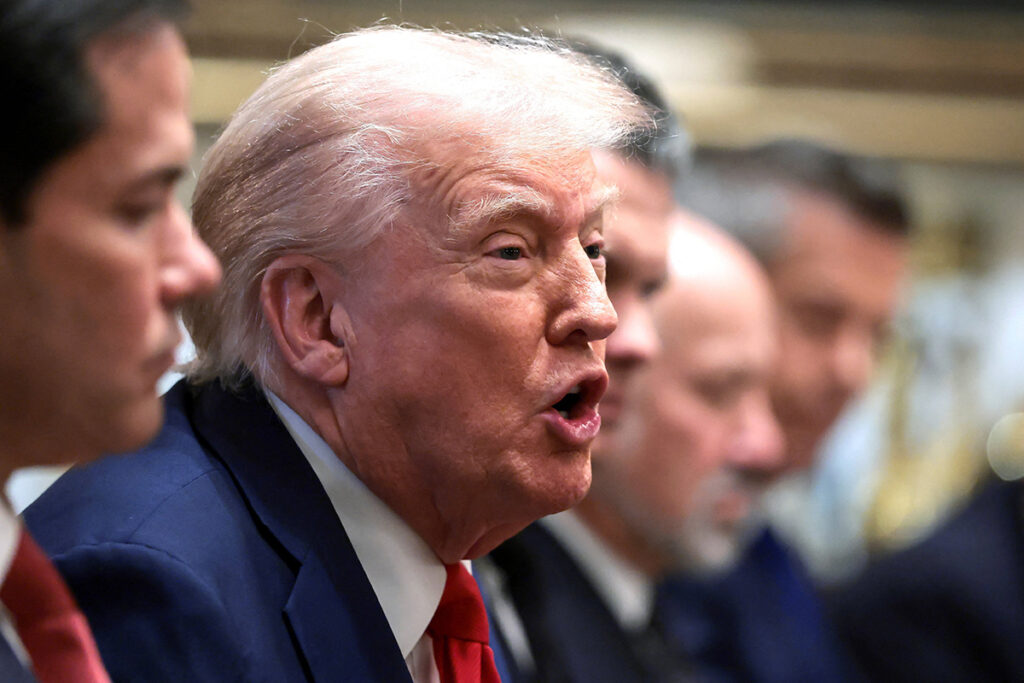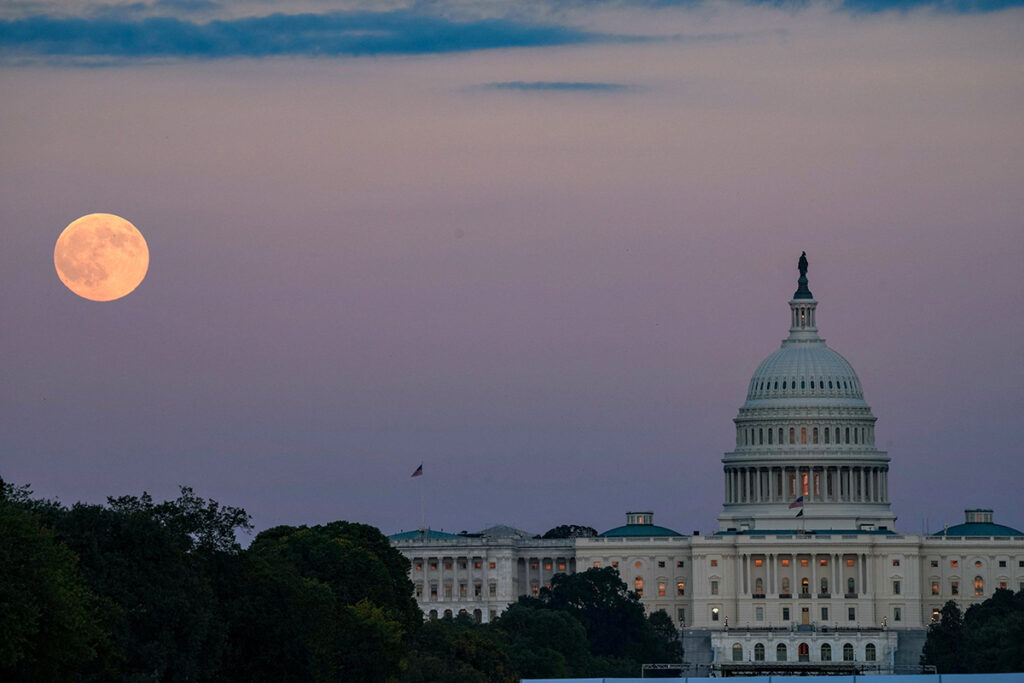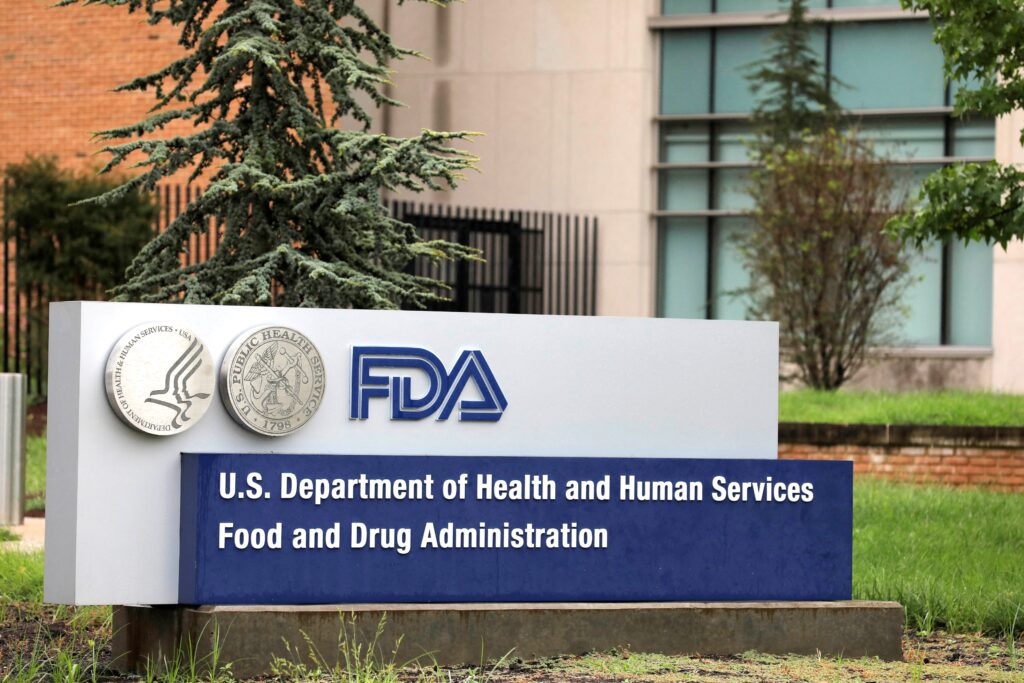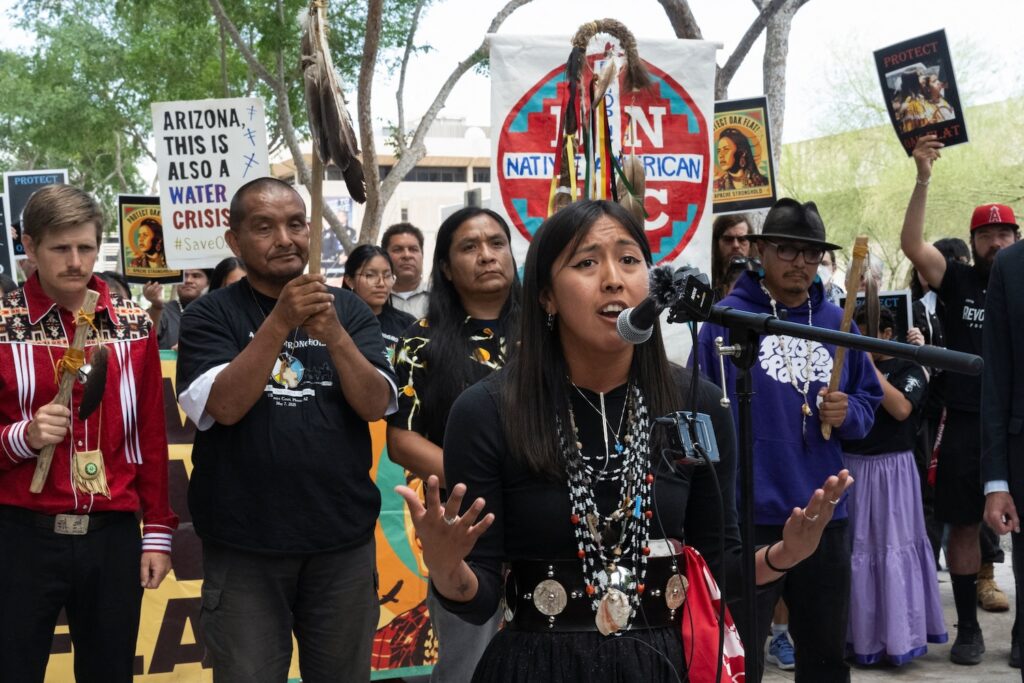WASHINGTON (OSV News) — Israel’s government ratified what the White House called the “first phase” of a ceasefire deal for the Gaza Strip, as President Donald Trump indicated he planned to visit the region.
The same week, the federal government shutdown continued as congressional lawmakers failed to pass funding legislation and senators who oppose abortion questioned why the FDA approved a new generic version of an abortifacient drug.
USCCB greets “first phase” of Gaza deal
After President Donald Trump announced Oct. 8 that Israel and Hamas “have both signed off” on the first phase of a White House peace proposal for the Gaza Strip, Bishop A. Elias Zaidan, chairman of the U.S. Conference of Catholic Bishops’ Committee on International Justice and Peace, greeted the development.
“As we learn that Israel and Hamas have both agreed to begin the first phase of President Trump’s 20-point peace plan — which includes the release of the remaining Israeli hostages and the withdrawal of Israeli troops to a mutually agreed upon line — I am immensely grateful to the United States and multilateral partners for their tireless work to begin the process that will, God willing, culminate in the ending of the devastating war in Gaza,” Bishop Zaidan said in an Oct. 10 statement.

In September, Trump released a 20-point peace plan to end the Israel-Hamas war, a proposal that was met with cautious optimism from some world leaders including Pope Leo XIV.
“As the peace process gets underway, I urge all international partners to urgently prioritize humanitarian assistance for the Gazan people, as well as the rebuilding of the Strip; this will lay the foundations not just for peace, but for the Gazan people’s prosperity,” Bishop Zaidan said.
The White House said it expects hostages to be released the following Monday.
In its attack on Israel in 2023, Hamas carried out mass killings, kidnapped hostages and provoked Israel to declare war the following day. About 1,200 people were killed in the surprise attack by Hamas, with militants engaging in sexual violence and taking hostages before retreating to Gaza.
In the nearly two years since, the Israeli government’s management of the ensuing conflict has been met with scrutiny and criticism, including from the United Nations, over its actions that led to catastrophic civilian casualties, mass displacement and famine.
More than 67,000 Palestinians have been killed and 170,000 injured in the war — casualties that account for approximately 10% of Gaza’s pre-war 2.1 million population — according to officials for Gaza’s Hamas-run health ministry. The vast majority of Palestinian casualties are believed to be civilians.

Trump suggested he should be awarded the Nobel Peace Prize, but on Oct. 10 it was announced that Venezuelan opposition leader María Corina Machado was awarded the prize.
Machado, who is Catholic, was nominated last year by a group that included then-Sen. Marco Rubio, who is now secretary of state and national security advisor, among multiple Trump administration roles.
Steven Cheung, White House director of communications, said in a post on X, “President Trump will continue making peace deals, ending wars, and saving lives.”
While the peace deal is not yet complete, Cheung suggested the Nobel Committee “proved they place politics over peace.”
However, the deadline for nominations for the 2025 award was Feb. 1.
According to The Associated Press, Trump congratulated Machado in a phone call Oct. 10.
Government shutdown continues
The federal government shutdown reached its 10th day on Oct. 10 as Congress continued to appear deadlocked on funding legislation.
During a government shutdown, some types of essential government services are exempt, including Social Security payments to older adults, but many other functions of government are suspended. Hundreds of thousands of federal workers are subject to furloughs, meaning they must stop working and will not be paid until the federal government reopens. Members of the armed forces are among those likely to have their paychecks delayed.
Archbishop Timothy P. Broglio of the U.S. Archdiocese for the Military Services urged Congress to pass the “Pay Our Troops Act of 2026” to “ensure that members of the U.S. Armed Forces, including the reserve components, and civilian personnel and contractors working for the Department of Defense, will continue to be paid during the government shutdown,” the archdiocese said in a statement.
Catholic entities that advocate for, or work with, people who are poor and vulnerable in the U.S. have generally cautioned against government shutdowns.
Among the programs that could be impacted is the Special Supplemental Nutrition Program for Women, Infants and Children, or WIC, they said.
The Associated Press reported Oct. 10 that the Trump administration is using $300 million in unspent tariff revenue from the previous fiscal year to keep WIC funded through the end of October.

Senators ask FDA why it approved a new generic pill used in abortion
Fifty-one senators, led by Sen. Lindsey Graham, R-S.C., sent a letter Oct. 9 to the heads of the Food and Drug Administration and the Department of Health and Human Services after the FDA recently approved a new generic form of mifepristone — a pill commonly, but not exclusively, used for early abortion — which drew criticism from pro-life advocates.
In the letter, released by Graham’s office, they wrote, “While we recognize the FDA’s statutory responsibility in evaluating drug applications, the timing of this approval appears inconsistent with the comprehensive safety reassessment your agencies have prioritized. Out of respect for this important review, and with full confidence in your dedication to protecting women’s health, states’ rights, and unborn life, we urge you to take decisive action to reevaluate whether this generic version of mifepristone is suitable to enter the market.”
In an Oct. 8 press call, Marjorie Dannenfelser, president of Susan B. Anthony Pro-Life America, which works to elect candidates who oppose abortion to public office, said there is a “slippage of confidence” in her assessment of HHS Secretary Robert F. Kennedy Jr. and FDA Commissioner Dr. Martin Makary as a result, but “any minute now that confidence could be restored.”
“At a minimum the FDA must immediately reverse the Biden-era policy of removing doctors by allowing mail-order abortion drugs without in-person medical oversight. Women are endangered by taking the drugs without a sonogram to check for ectopic pregnancy and confirm the gestational age of the child,” Dannenfelser said in another press statement about Graham’s letter. “Further, doctors can help screen for coercion and abuse, which is becoming more and more prevalent.”

On Sept. 30, the FDA notified Evita Solutions that its generic version of mifepristone was approved, despite previous suggestions from FDA and HHS officials that mifepristone would undergo a review.
The move was met with condemnation from pro-life advocates, including former Vice President Mike Pence, who wrote in a post on X, “The Trump Administration’s approval of a generic chemical abortion drug is a complete betrayal of the pro-life movement that elected President Trump.”
The drug’s approval marks the second time a Trump administration has approved a generic form of the drug. The first time was in 2019.
Melania Trump said ‘back channel’ effort helped return some Ukrainian children
First lady Melania Trump said Oct. 10 that she has had “back channel” communication with Russian President Vladimir Putin in order to facilitate the return of children taken by Russia during its invasion of Ukraine.
Ukrainian officials say nearly 20,000 Ukrainian children have been abducted since the start of the war.
The first lady, who previously wrote to Putin to urge him to release the children kidnapped by Russia during the war, said he “responded in writing, signalling a willingness to engage with me directly.”
“Since then, President Putin and I have had an open channel of communication regarding the welfare of these children,” she said. “For the past three months, both sides have participated in several back-channel meetings and calls, all in good faith.”
Trump said a representative for her has been “working directly with President Putin’s team” on reunification efforts.
“This remains an ongoing effort. Plans are already under way to reunify more children in the immediate future. I hope peace will come soon.”

The first lady did not make clear the identities of the children involved, but said “eight children have been rejoined with their families during the past 24 hours.” She said three were “separated from their parents and displaced” to Russia over “front-line fighting,” and another five were “separated from family members across borders because of the conflict.” But one of those five, she said, was a young girl returned to relatives in Russia.
The first lady’s letter was hand-delivered by President Donald Trump when he met with Putin in Alaska in August. Ukrainian President Volodymyr Zelenskyy later gave Trump a letter for the first lady from his wife, Ukraine’s first lady, Olena Zelenskyy, expressing gratitude for that action.
Supreme Court turns down Apache Stronghold case again
The U.S. Supreme Court on Oct. 6 again declined to take up a case from a coalition of Western Apache people, along with other Native American and non-Indigenous supporters, that sought to protect their sacred site at Oak Flat, Arizona, from destruction by a copper mining giant.
In May, the Supreme Court declined to take up an appeal from the coalition, leaving in place lower court decisions that permitted the transfer of Oak Flat in Tonto National Forest to Resolution Copper, a foreign-owned mining company. The group had asked them to reconsider.
An environmental impact report for the project mandated by the National Environmental Protection Act estimated that mining the site would result in a crater nearly 2 miles in diameter and about 800 to 1,000 feet deep.
The Trump administration has signaled it plans to allow the mining project to move forward. But witnesses at the inaugural meeting of the Department of Justice’s Religious Liberty Commission on June 16 raised the case as a religious liberty concern.
In a dissent at that time, Justice Neil Gorsuch, joined by Justice Clarence Thomas, argued the court made “a grave mistake” in declining the case, arguing it met their standards for hearing the appeal.
“Before allowing the government to destroy the Apaches’ sacred site, this Court should at least have troubled itself to hear their case,” he wrote.

Gorsuch on Oct. 6 indicated he would have granted the coalition’s appeal for a rehearing.
In an Oct. 6 statement, Apache Stronghold said, “This morning, we received word that the Supreme Court has decided not to reconsider our case. While this decision is deeply disappointing, the fight to protect Oak Flat is far from over.”
Apache Stronghold said it would continue to press the case in lower courts, and mentioned that three other active cases are seeking to protect Oak Flat.
“We’ll also keep urging Congress, the President, and federal agencies to stop the destruction of Oak Flat and protect our ancestral sacred land,” the group said.
A broad range of organizations from multiple faith groups — including the U.S. Catholic bishops — previously argued the high court should hear the coalition’s plea because the case has serious implications for the scope of the Religious Freedom Restoration Act.
Kate Scanlon is a national reporter for OSV News covering Washington. Follow her on X @kgscanlon.




